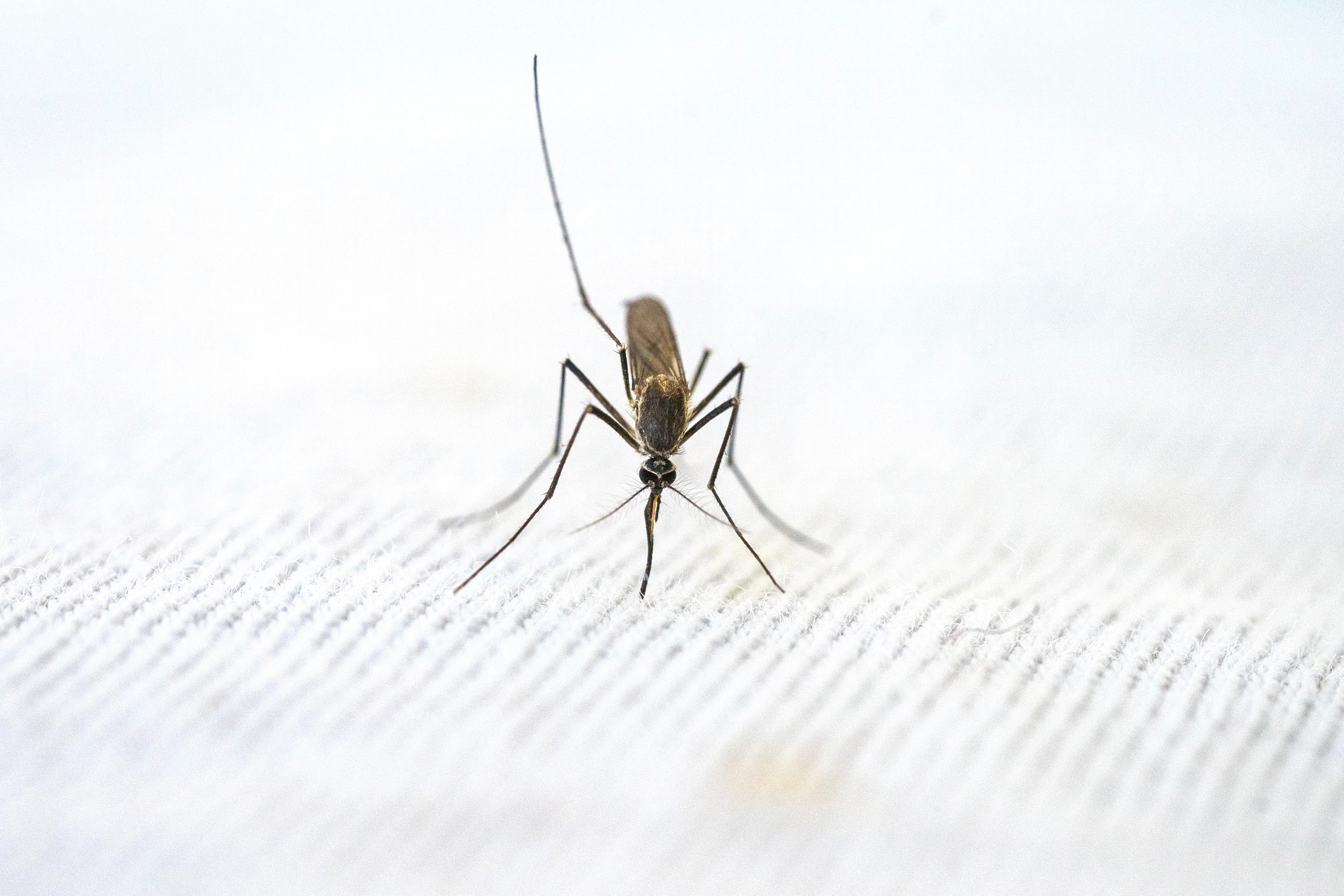Antimalarial Activity of Ethanol Extract of Kelakai Leaves (Stenochlaena palustris) to Parasitemia and Splenomegaly in BALB/c Mice Infected with Plasmodium berghei ANKA

Downloads
Introduction: Malaria is one of global health problems. Splenomegaly is one of malaria symptoms. Antimalarial drug resistance had been reported. Alternative treatment is by using traditional medicinal plants such as kelakai (Stenochlaena palustris). Kelakai contains alkaloid and flavonoid which had been reported to have antimalarial activity. The aim of this study was to discover antimalarial activity of ethanol extract of kelakai leaves to parasitemia and splenomegaly of Plasmodium berghei ANKA in infected BALB/c mice.
Methods: This study was based on a modified Peter test using BALB/c mice infected with P. berghei ANKA treated with ethanol extract of kelakai leaves, with chloroquine diphosphate as a positive control. The negative control was P. berghei ANKA infected mice without any additional treatment. Administration of ethanol extract of kelakai leaves was performed for 4 days with a serial doses of 100, 10, and 1 mg/kg body weight. The positive control was given chloroquine diphosphate 20 mg/kg body weight. Parasitemia was observed daily prior to the calculation of the percentage of parasite growth and parasite growth inhibition. At the end of the test, the mice were sacrificed and spleens were isolated to measure their sizes. Probit analysis was performed to obtain ED50 to find the effect of extract in parasite killing by 50%. Spearman test was performed to analyze the correlation of doses of extract and splenomegaly.
Results: Parasitemia growth inhibition was directly proportional to the dose. Higher parasitemia inhibition was obtained at higher doses and vice versa. Result of probit analysis showed an ED50 was 77.05 mg/kg body weight. Statistical analysis resulted in insignificant correlation between doses and splenomegaly p = 1.0 (significancy < 0.05).
Conclusion: Ethanol extract of kelakai leaves possessed good antimalarial activity and there was no correlation between extract doses and splenomegaly in Plasmodium berghei ANKA-infected mice.
CDC. CDC-Malaria-About Malaria–Where Malaria Occurs. [online] 2017 [cited 2017 Jun 15] Available from: URL: https://www.cdc.gov/malaria/about/distribution.html.
Portillo H, Ferrer M, Brugat T, Martin-Jaular L, Langhorne J and Lacerda M. The role of the spleen in malaria. Cellular Microbiology, 2012;14(3):343-355.
CDC. CDC - Malaria - About Malaria. [online] 2015 [cited 2017 Jun 14] Available from: URL: https://www.cdc.gov/malaria/about/index.html.
WHO. World Malaria Report 2018. [online] 2018 [cited 2018 Nov 10] Available from: URL:http://apps.who.int/iris/bitstream/handle/10665/275867/9789241565653-eng.pdf?ua=1.
Kemenkes. Profil Kesehatan Indonesia 2015. Jakarta. Kemenkes RI, [online] 2016 [cited 2017 Jun 15] Available from: URL: http://www.depkes.go.id/resources/download/pusdatin/profil-kesehatan-indonesia/profil-kesehatan-Indonesia-2015.pdf.
Kemenkes. Buletin Jendela Data dan Informasi Kesehatan Epidemiologi Malaria. Jakarta. Kemenkes RI, [online] 2011 [cited 2017 Jun 15] Available from: URL: https://www.depkes.go.id.download.php?file=download/pusdatin/buletin-malaria.pdf.
Maharani D, Haidah S and Haiyinah. Studi Potensi Kalakai (Stenochlaena palustris (Burm.F) Bedd), Sebagai Pangan Fungsional. Pimnas 2006. 2006
Louisa M. In Gunawan SG, Setiabudy R, Nafrialdi, Instianty, editors. Farmakologi dan Terapan. 6th ed. Jakarta: FK UI; 2016 p.574.
Ntie-Kang F, Onguéné P, Lifongo L, Ndom J, Sippl W and Mbaze L. The potential of anti-malarial compounds derived from African medicinal plants, part II: a pharmacological evaluation of non-alkaloids and non-terpenoids. Malaria Journal. 2014;13(1):1-20.
Johnson M. Laboratory Mice and Rats. Labome.com [online] 2012 [cited 2018 Oct 25. Available from: URL: https://www.labome.com/method/Laboratory-Mice-and-Rats.html#ref103.
Festing M. MGI - Inbred Strains: BALB. Informatics.jax.org [online] 1998 [cited 2018 Oct 25];. Available from: URL: http://www.informatics.jax.org/inbred_strains/mouse/docs/BALB.shtml.
McNally J. Erythrocyte Invasion by the Rodent Malaria, [Thesis], Dublin City University, 1994;7-8.
Nurhayati S. 2011. Propagasi Plasmodium berghei Iradiasi Gamma Laju Dosis Tinggi pada Mencit (Mus musculus). Seminar Nasional Keselamatan Kesehatan dan Lingkungan VII. 2011;88-96.
Prajnalaga F and Susilowati E. Perbandingan Ekstrak Etanol Dan Metanol Daun Gaharu (Aquilaria malaccensis) Terhadap Aktivitas Antiradikal Bebas Dengan Metode DPPH. 2014;1-8.
Nurmilatina. Analisis Komposisi Kimia Daun Kelakai (Stenochlaena palustris Bedd.) dengan Berbagai Pelarut menggunakan GCMS. Jurnal Riset Industri Hasil Hutan. 2017;9(1):9-16.
Harahap R, Batubara R. and Surjanto. Uji Antioksidan Daun Muda dan Daun Tua Gaharu (Aquilaria malaccensis Lamk) Berdasarkan Perbedaan Tempat Tumbuh Pohon. Peronema Forestry Science Journal. 2015;4(4).
Phillipson JD. Assays for Antimalarial and Amoebicidal Activities. Methods in Plant Biochemistry. 1991;6:135-152.
Sari S, Hafid A. and Widyawaruyanti, A. Efek Pemberian Dosis Berulang dan Dosis Tunggal Ekstrak Kulit Batang Cempedak (Artocarpus Champeden Spreng.) Pada Mencit Terinfeksi Plasmodium berghei. Jurnal Ilmu Kefarmasian Indonesia. 2015;13(1):23-28
Herintsoa R, Baholy R, Solofoniaina R, Mirindra R, Fernanto R, Hajatiana R, Harivony R, Maminirina R, Armand R, Jacques R, Jean-François R, Suzanne R, Tona G, Mesia G, Derese S and Midiwo J. Screening of Plant Extracts for Searching Antiplasmodial Activity. 2005;136-144.
Suhartono E, Bakhriansyah M and Handayani R. Efek Ekstrak Stenochlaena palustris terhadap Jumlah Circulating Endothelial Cells Marmota caligata Setelah Didemamkan. Majalah Farmasi Indonesia. 2010;21(3):166 – 170.
Muti'ah R. Penyakit Malaria Dan Mekanisme Kerja Obat-Obat Antimalaria. Alchemy. 2012;2(1):80-91.
Suhartono E, Viani E, Rahmadhan M, Gultom I, Rakhman M and Indrawardhana D. Total flavonoid and Antioxidant Activity of Some Selected Medicinal Plants in South Kalimantan of Indonesian. APCBEE Procedia. 2012;4:235-239
Cahaya N, Aulia R. and Nurlely.Efek Daun Kelakai (Stenochlaena palustris) terhadap Jumlah Eritrosit, Bentuk Eritrosit dan Kadar Hemoglobin (Hb) Pada Tikus Putih (Rattus norvegicus) Anemia. Researchgate. 2016:1-8
Nurhayati, S. Propagasi Plasmodium berghei Iradiasi Gamma Laju Dosis Tinggi pada Mencit (Mus musculus). Seminar Nasional Keselamatan Kesehatan dan Lingkungan VII. 2011;88-96.
Triajayanti A and Oktarlina R. Peran Antioksidan pada Buah Delima dan Buah Merah (Pandanus conoideus) terhadap Splenomegali pada Penderita Malaria. Medula. 2017;7(4):94-100.
Soniran O, Idowu O, Ajayi O and Olubi. Comparative Study on the Effects of Chloroquine and Artesunate on Histopathological Damages Caused by Plasmodium berghei in Four Vital Organs of Infected Albino Mice. Malaria Research and Treatment, 2012;2012:1-7.
Copyright (c) 2022 Jurnal Ilmiah Mahasiswa Kedokteran Universitas Airlangga

This work is licensed under a Creative Commons Attribution-ShareAlike 4.0 International License.
1. The journal allows the author to hold the copyright of the article without restrictions.
2. The journal allows the author(s) to retain publishing rights without restrictions
3. The formal legal aspect of journal publication accessibility refers to Creative Commons Atribution-Share Alike 4.0 (CC BY-SA).




























